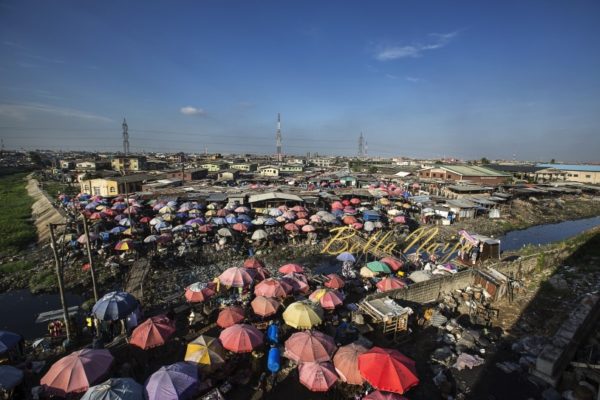Features
Adefolake Adekola: Overpopulation is a Serious Problem in Lagos
 Moving from Abuja to Lagos State was exciting the first few weeks. Until reality set in. The atmosphere was choking, the public transport overcrowded, the roads full of potholes and the traffic humbling. All of these I blamed on the dense population.
Moving from Abuja to Lagos State was exciting the first few weeks. Until reality set in. The atmosphere was choking, the public transport overcrowded, the roads full of potholes and the traffic humbling. All of these I blamed on the dense population.
Population is defined as the total number of individuals/species living in a geographical area over a period of time. This means that overpopulation is when there are more people living in a location than the economic, natural resources or space can accommodate or sustain.
According to CDC (Centre for Disease Control), there are three major causes of overpopulation.
1. Natality (the ratio of the number of births to the population): Higher natality, which is the greatest influence of overpopulation, is not the case in Nigeria. Natality is low in Nigeria and is not the cause of our overpopulation.
2. Low mortality rate: Mortality rate in developed countries is low because of high natality, health care and so on. This explains a high population in certain cities. However, this also does not apply to Nigeria and other underdeveloped countries. The mortality rate in Nigeria is still high and therefore is not the reason for overpopulation in cities like Lagos.
3. Migration: The alarming cause of overpopulation in Lagos is migration (which is the act of people leaving their communities, mostly rural, to another community, usually cities). Lagos has a population of approximately 21 million people, making it the city with the largest population in Africa, yet the smallest in total area size/land area in Nigeria (World Population Review, 2018). Studies show that thousands of people troop into Lagos State on a daily basis.
California is the most populated state in America with a population of over 39 million people, but the population per square mile does not make California overpopulated because the resources and the land area can accommodate the population.
It is important to note that there might come a time when the resources in populous cities and countries will not be able to cater to the people residing there. Oftentimes, the wastage of the resources available contributes to the shortage of resources. Humans are taking more from the earth than we are giving back. Overpopulation puts a strain on the resources in a geographic area, such as water, land, air circulation and ecosystem services. Proper management can, however, minimize the impact of overpopulation on the human health and environment. Re-using and recycling will also go a long way to increase the earth’s resource capacity.
Effects of overpopulation
1. On the Human Health:
-Extinction of animal species.
– Destruction of the food chain and the ecosystem.
– Health losses caused by the destruction of medicinal plants.
-Hunger causing various health conditions.
-Congestion leading to difficulty in breathing and other health problems.
2. On the Environment:
– Air, land and water pollution.
– Loss of crops, forests and wetlands.
– Destruction of vegetation (deforestation).
– Destruction of lands due to industrial developments.
– Climate change as a result of pollution.
-Poor sanitation and waste disposal.
3. On the Economy:
– Poverty
-Lack of jobs
– Insecurity and an increased crime rate
– Depression
– Infrastructure facilities are overstretched
-Water shortage
A common implication of these effects of overpopulation is the financial implication. The effect of overpopulation on the human health, environment and economy will affect the GDP of the country because poor management of the environment leads to poor health which affects the productivity of the people living in these areas.
The solutions for overpopulation in cities in Nigeria are:
1. The promotion of family planning.
2. Spreading awareness about overpopulation.
3. Implementing new government policies.
4. Job opportunities in every state to prevent excessive migration.
5. Security.
6. Provision of basic amenities and proper education.
Photo Credit: Fotos.com.ng






















